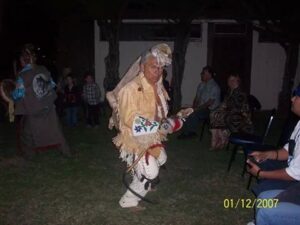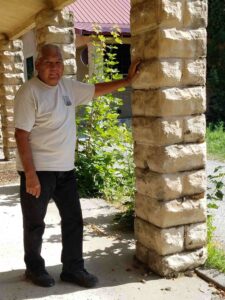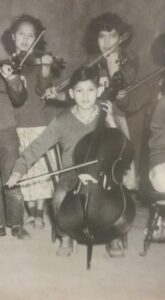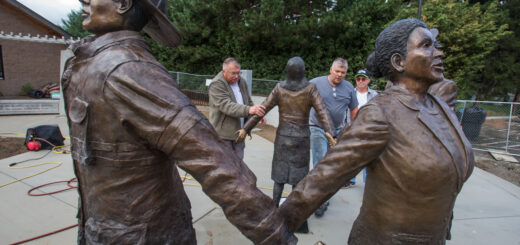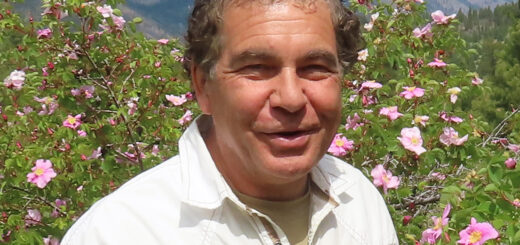Incredible life story of Wenatchi band descendant Arnold Cleveland coming to Wenatchee Museum on Oct. 25
I am continually reminded of the important role our Wenatchee Valley Museum and Cultural Center plays in building helping connecting us to the past as a way of deepening our understanding and appreciation for our heritage.
We are seeing a growing appreciation for the Native American’s and their rich history in our region, thanks to the museum, which is taking on diverse opportunities to tell a fuller story of our past. The museum just finished putting on a wonderful interpretive exhibit of Skookum Apple Packers global marketing campaign. This Saturday, the museum has sold out every seat on its Native Heritage Bus tour, a day-long exploration of important sites hosted by Native American guide Randy Lewis. And on Oct. 25, there will be a fascinating discussion at the museum with Arnold Cleveland, a Wenatchi band descendant and member of the Colville Confederated Tribes.
The museum’s Selina Danko has spent hours learning about Cleveland and writing down his life history. It was her vision to spend a night hearing from this Colville Tribal elder. Here are a few interesting nuggets that she discovered from her interview with him.
When Cleveland was an infant, his mother was working the fruit packing sheds and the story is told that she pushed the box that held him down the line as she worked. His family spent winters in Ellensburg and they worked the fruit tramp circuit through Washington, Oregon and California. The frequent moving around meant learning how to use his fists to take care of himself.
Like most Native American youngsters of that time, he spent some of his early years at St. Mary’s Mission boarding school. Life there was at times harsh and unforgiving, particularly for a strong-willed young man like Cleveland who was unafraid of testing the limits of the rules and regulations. After being expelled from St. Mary’s, he ended up attending school in Ellensburg and his fighting spirit was channeled by sports coaches and his musical talents were also further refined.
From an early age, he learned the value of hard work from his father, whether it was pitching hay or milking cows by hand. That work ethic stuck with him to this day. When he discovered in the school history book that his family was portrayed as savages, he objected and, with the support of his athletic coaches, took his complaint all the way to Olympia. It didn’t cause a change then but told me he’s still hopeful for a more accurate representation.
He went on to serve in the Marine Corps and then spent more than three decades working in the fruit and vegetable sheds for such outfits as the Lake County Pear Growers and the California Fruit Exchange. He had a talent for figuring out how to make equipment work more efficiently and for managing people to get the most out of them. Meanwhile, as a sideline he pursued a music career playing as a lead singer in a Country and Western band called “The Cowboy and Indian Show.” He has a voice that sounds a lot like Johnny Cash.
When he was 70 years old, in 2009, Cleveland decided one day that he wanted to bicycle from the Pacific to the Atlantic Ocean. With wife Gail providing support, he pedaled the 3,000-plus miles to the city.
This is just the tip of the iceberg when it comes to Cleveland’s story. Some of his relatives succumbed to alcohol, depression and lost all hope. Cleveland found it within himself to meet the challenges and rise above them.
What an honor it will be to hear him tell his story in his own words at the museum on Tuesday, Oct. 25. Arnold Cleveland is one of the many unsung heroes in our midst and we would do well to spend time hearing their stories and reflecting on what others experienced here.

